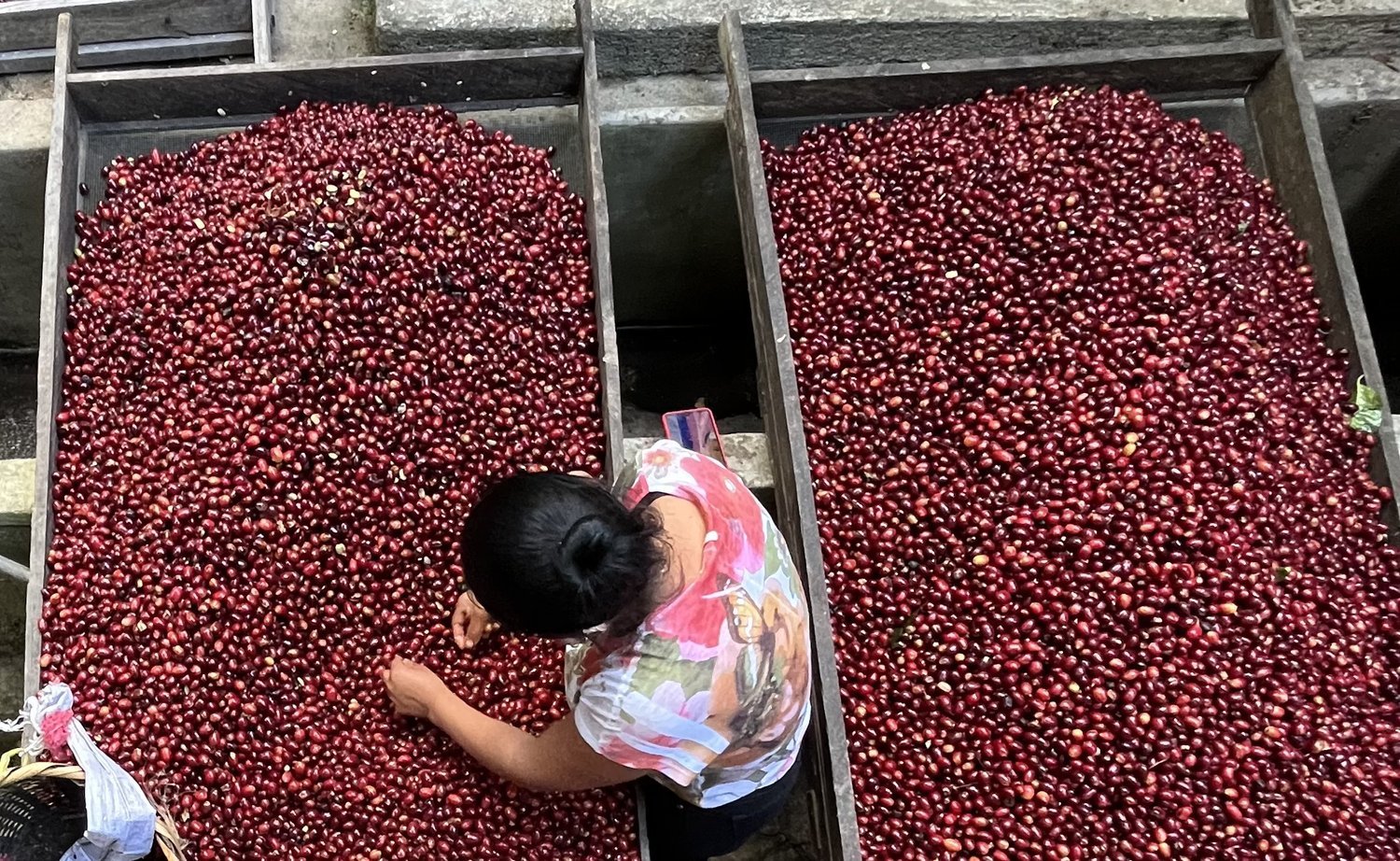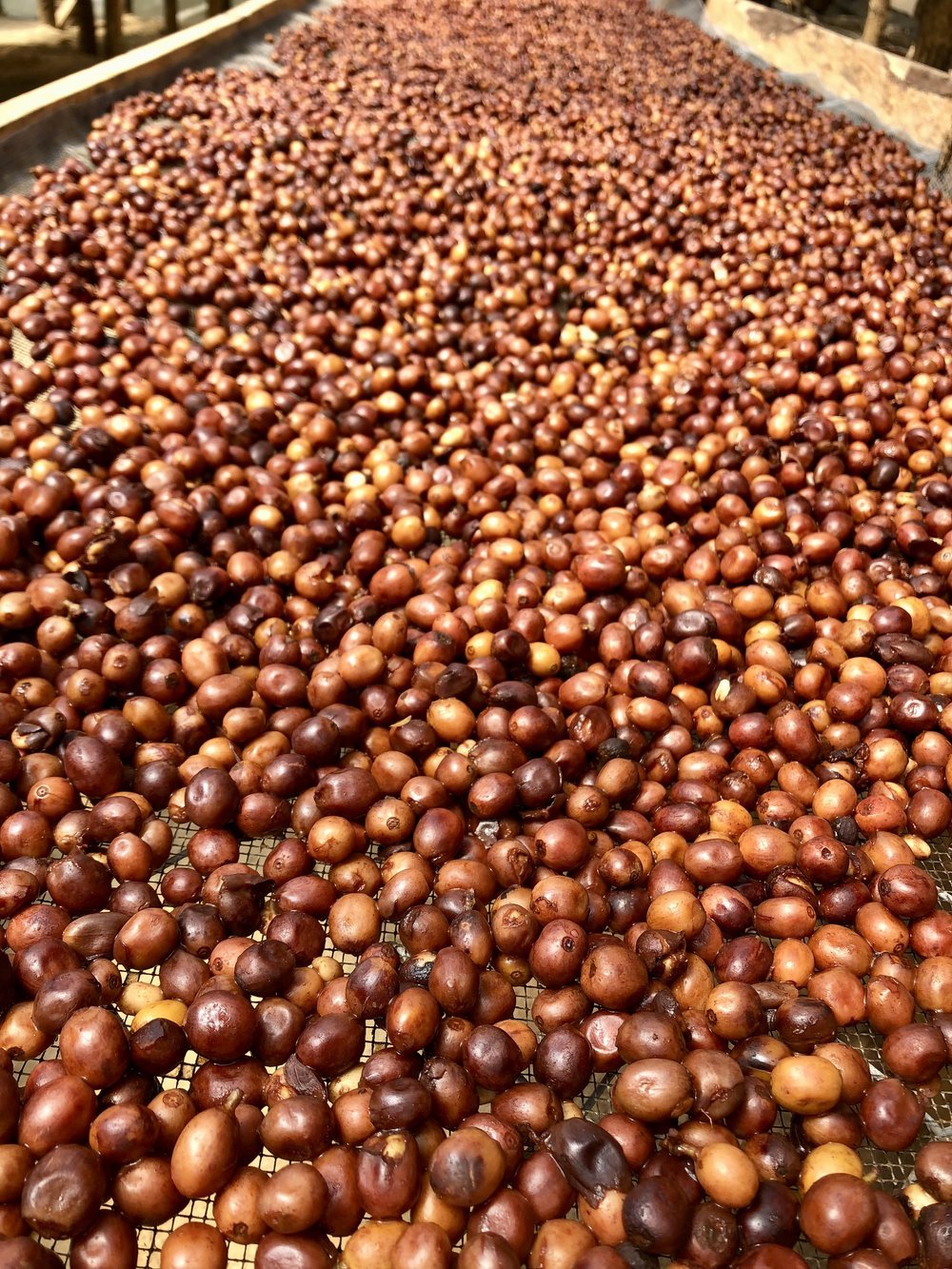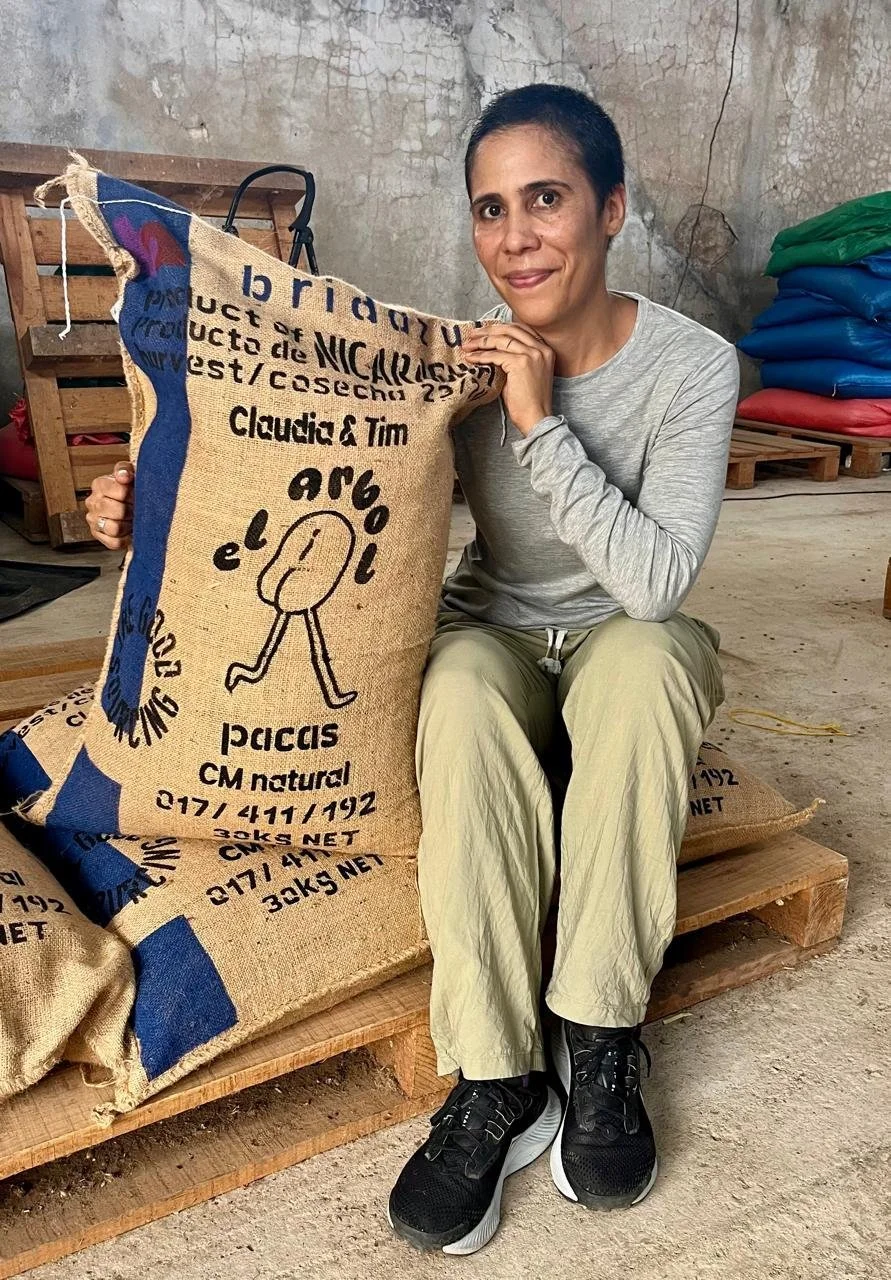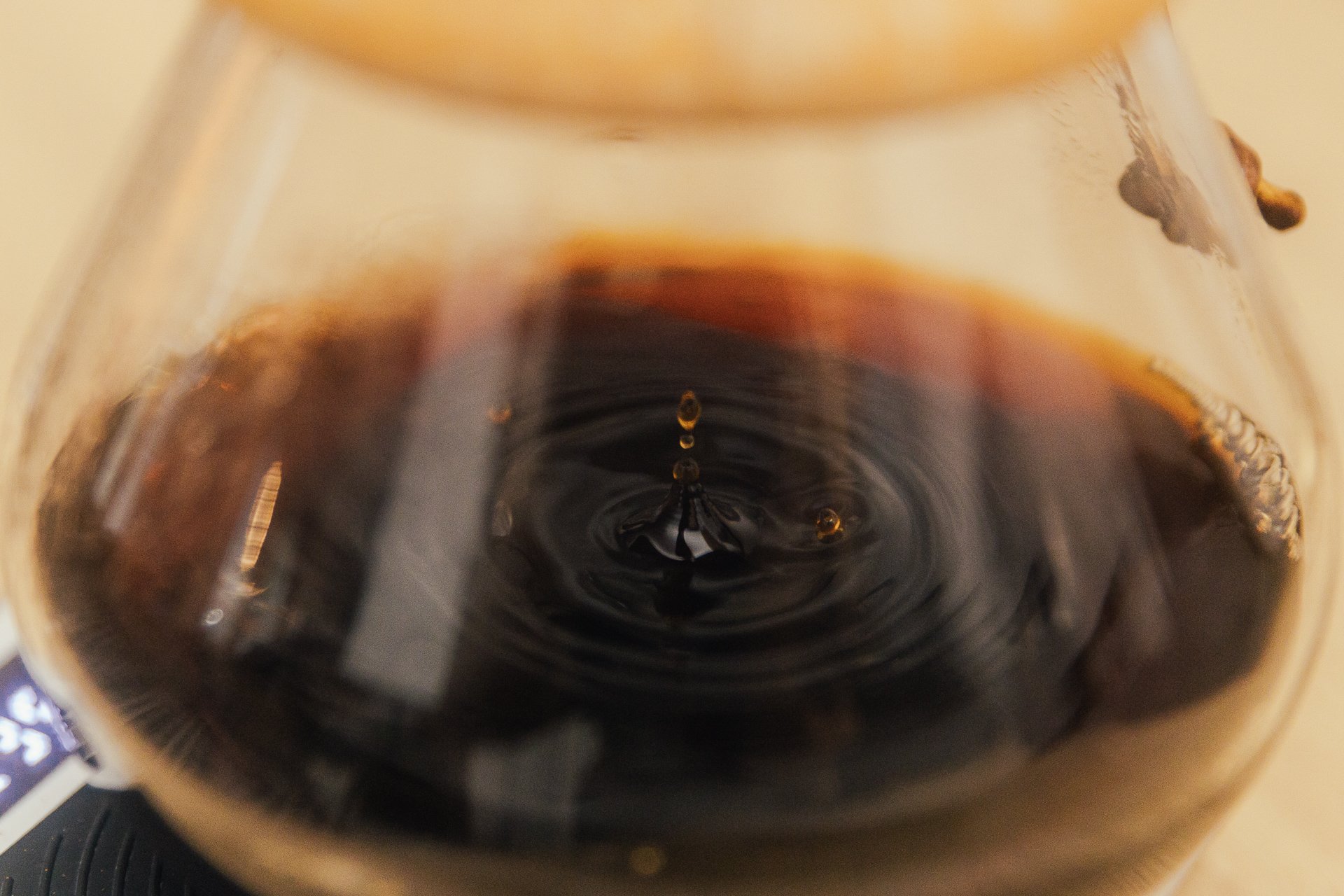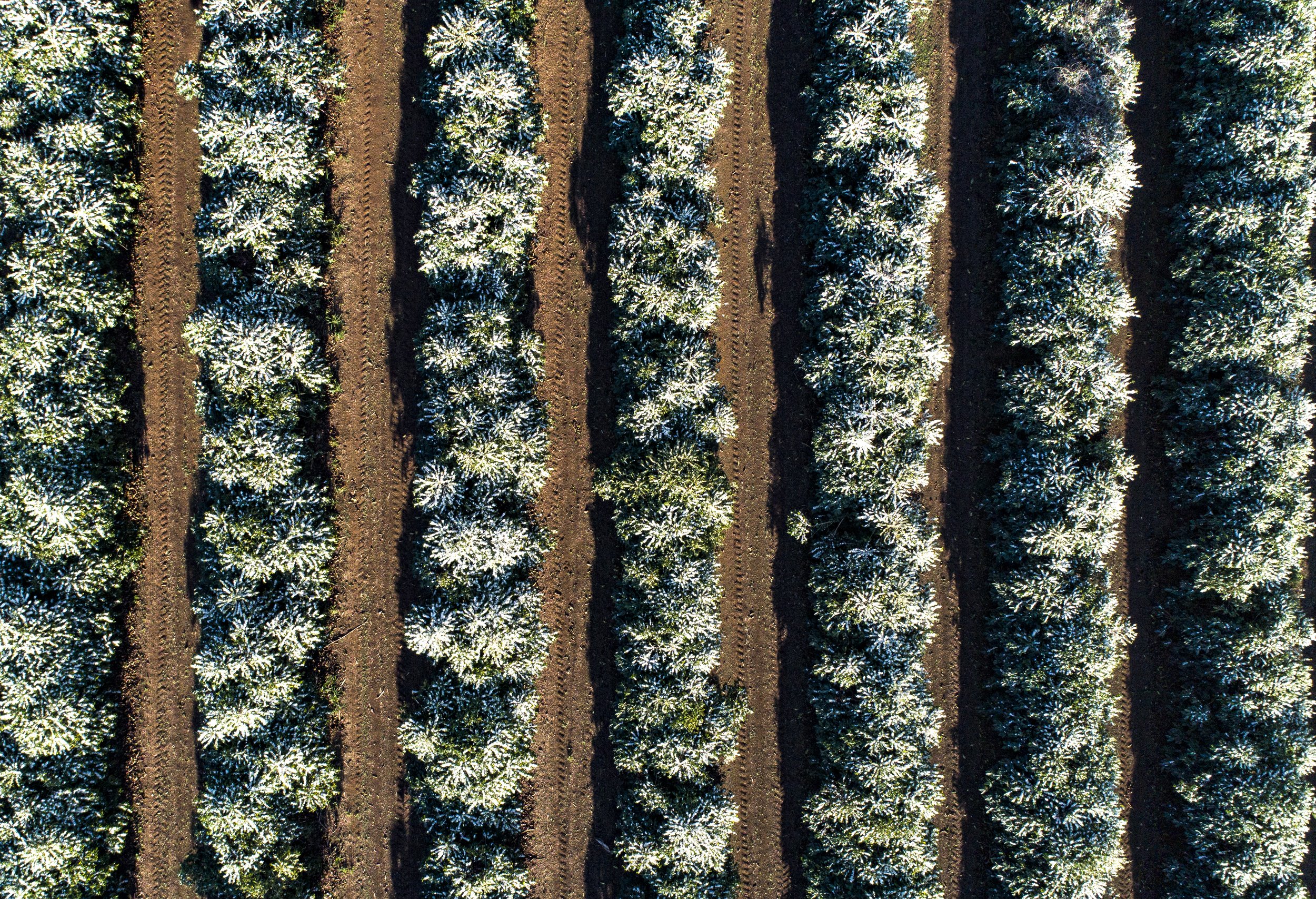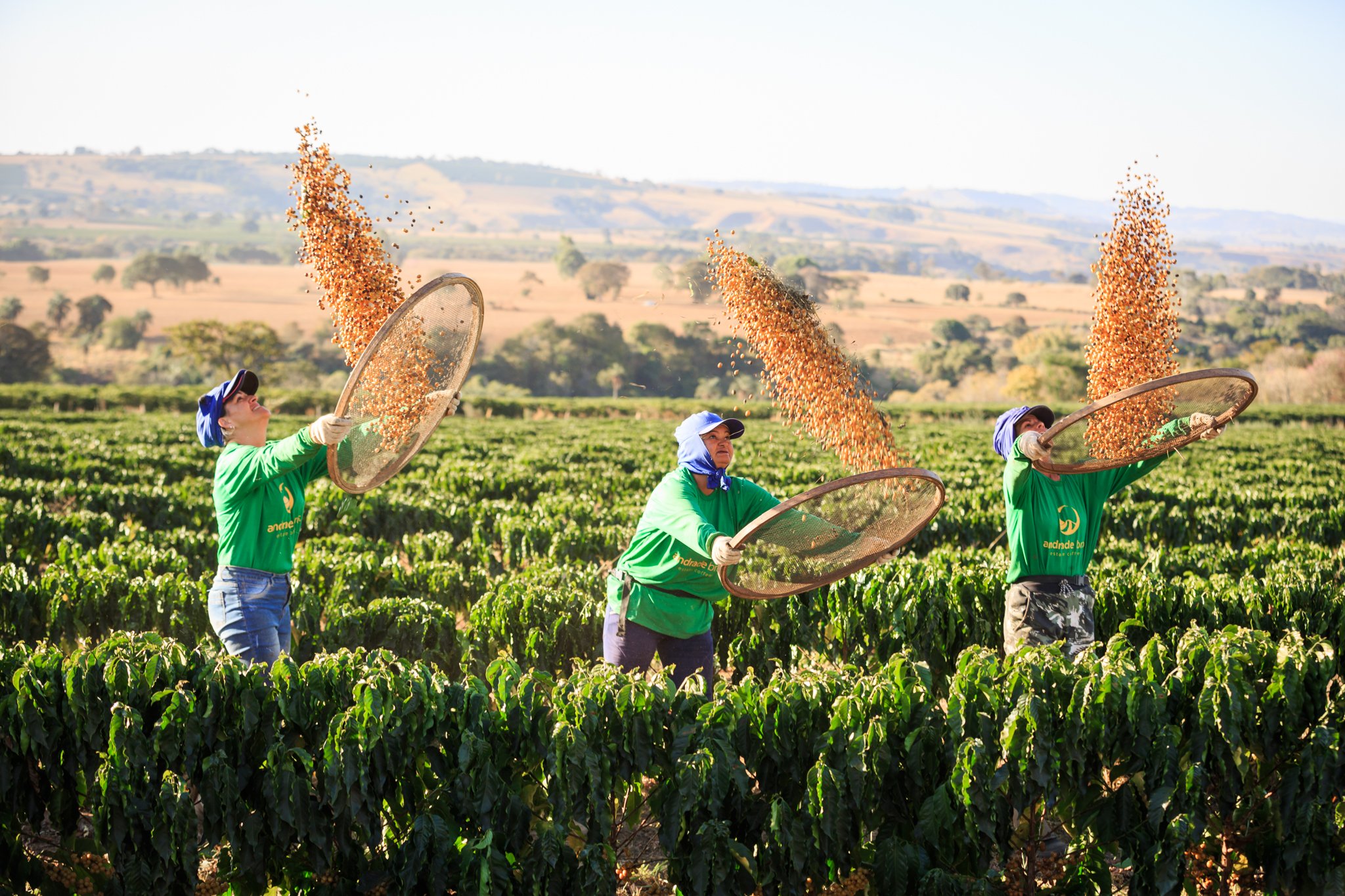Nicaragua / El Árbol / Carbonic Maceration, Natural / Light roast
250 g
Roast level: Light
Recommended for:
Filter brewing
In a cup.
Flavor notes: Rum truffles, strawberry compote, smooth and full-bodied with hints of demerara sugar. Long-lasting, pleasantly chocolatey aftertaste.
Origin country: Nicaragua
Region: Ocotal, Dipilto
Coffee farm: El Árbol
Coffee farmers: Claudia Lovo and Tim Willems
Elevation of the coffee farm: 1110–1300 meters above sea level
Harvest time: November 2023 – February 2024
Processing method: Carbonic Maceration*, Natural
Variety: Catimor
Roasted in Latvia, Ventspils
250 g
Roast level: Light
Recommended for:
Filter brewing
In a cup.
Flavor notes: Rum truffles, strawberry compote, smooth and full-bodied with hints of demerara sugar. Long-lasting, pleasantly chocolatey aftertaste.
Origin country: Nicaragua
Region: Ocotal, Dipilto
Coffee farm: El Árbol
Coffee farmers: Claudia Lovo and Tim Willems
Elevation of the coffee farm: 1110–1300 meters above sea level
Harvest time: November 2023 – February 2024
Processing method: Carbonic Maceration*, Natural
Variety: Catimor
Roasted in Latvia, Ventspils

250 g
Roast level: Light
Recommended for:
Filter brewing
In a cup.
Flavor notes: Rum truffles, strawberry compote, smooth and full-bodied with hints of demerara sugar. Long-lasting, pleasantly chocolatey aftertaste.
Origin country: Nicaragua
Region: Ocotal, Dipilto
Coffee farm: El Árbol
Coffee farmers: Claudia Lovo and Tim Willems
Elevation of the coffee farm: 1110–1300 meters above sea level
Harvest time: November 2023 – February 2024
Processing method: Carbonic Maceration*, Natural
Variety: Catimor
Roasted in Latvia, Ventspils
Story of Coffee
El Árbol Farm
Behind El Árbol coffee farm is the remarkable Claudia Lovo, who purchased the farm in 2016 with support from Sasa Sestic**. Now, Claudia and her partner, Tim, live on the farm and lead the Bridazul project, making El Árbol a hub for knowledge sharing and a meeting place for coffee growers.
Here, they cultivate various coffee varieties as well as crops like ginger, fruits, and vegetables, which provide food for visitors and the 20 farm workers during harvest season.
The name El Árbol, meaning "The Tree" in Spanish, honors a majestic tree in the heart of the farm, symbolizing the values guiding their operations. Trees are given space, and chemical use is strictly controlled to keep farming as organic as possible.
A Place for Experiments
El Árbol is constantly exploring new methods in coffee processing. The origins of the carbonic maceration technique* can be traced back here, with Claudia and Sasa pioneering this approach. Thanks to the Bridazul project, established in 2019, El Árbol has become a center for knowledge exchange and networking. The farm has a cooling room that enables carbonic fermentation and is available for other coffee growers.
*Processing Method
At El Árbol, carbonic maceration is a hallmark processing technique, first developed on this very farm. Frequently used in winemaking, this process enhances the fruit notes and richness of the coffee’s flavor and mouthfeel.
First, the coffee cherries ferment in sealed containers in a controlled, cool environment to prevent unwanted bacteria growth. During maceration, CO2 is produced, pushing oxygen out of the container. This allows fermentation to occur from the inside out. After several days, the cherries achieve a gelatinous, rich texture. Once removed from the containers, the cherries are first placed on "beds" in the cooling room to halt further fermentation. When they reach a lower moisture level, they are dried on raised African beds outdoors.
Bridazul Project
Bridazul is a holistic initiative founded in 2019 by Claudia Lovo and Tim Willems. The project aims to support coffee farms transitioning to the specialty coffee market while mitigating climate change's impact on coffee production.
Claudia, born in Nicaragua, owns El Árbol, where carbonic maceration was initially developed in the early 2010s. Tim, originally from Belgium, worked in coffee roasting and cafes across Europe before falling in love with Nicaragua.
Together, they established Bridazul to share knowledge with coffee farmers and provide the necessary infrastructure for specialty coffee fermentation and processing. Bridazul has also become a place for frequent discussions about the future of coffee in Nicaragua.
Nicaragua is among the countries most affected by climate change, with coffee crops being some of the hardest hit. In its second phase, the project plans to establish a group of coffee farms transitioning to complementary crops, thus reducing dependence on coffee alone. This approach will foster greater agricultural diversity and encourage a more balanced way of farming.
Bridazul brings together around fifty small and medium-sized coffee farms (with an average of less than 10 hectares).
**Sasa Sestic is a world-renowned coffee professional from Australia and the 2015 World Barista Champion. He is also the founder of the highly-regarded Ona Coffee roastery and is widely recognized for his innovative coffee processing techniques, particularly in carbonic maceration, a method used at El Árbol farm.





